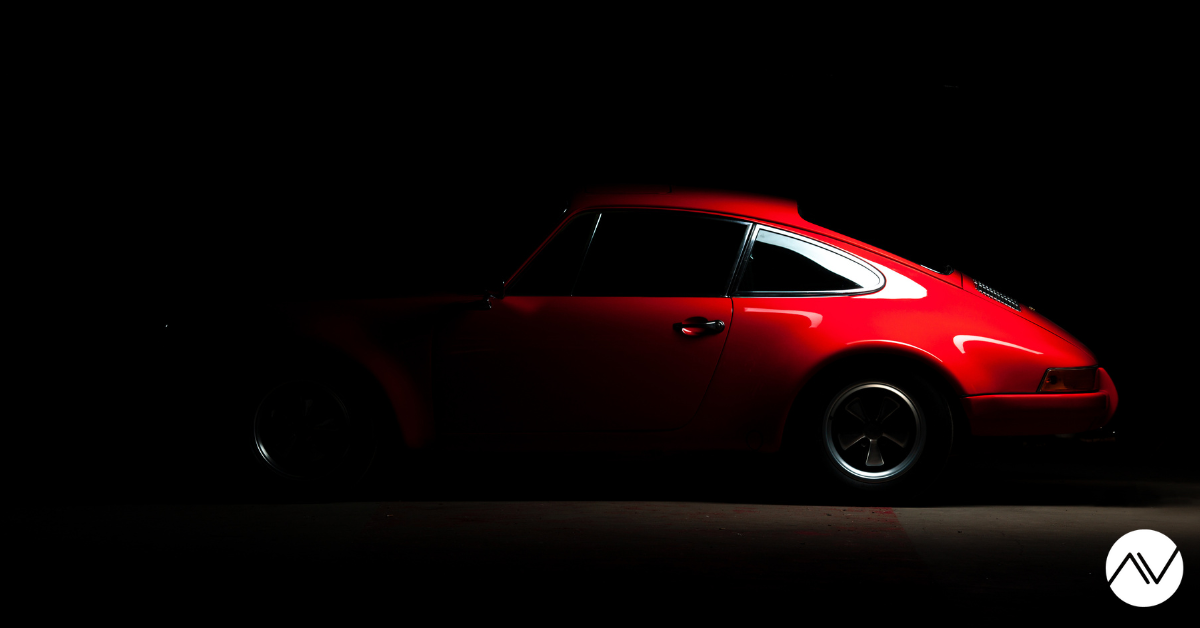
IDEA KICKER: Porsche's e-Macan derived growth is not worth a 911-PE
After a promising start and investor anticipation of a new luxury automotive stock to compete with Ferrari, Porsche has seen its stock price revert to its initial IPO level. The recent challenges faced by the group in China, the production issues affecting key models and the persistent governance concerns have exerted downwards pressure on the stock price. There are no good reasons to see these negatives disappear.
In-between product
Porsche is a luxury brand but not one of scarcity. That shows and hopes that the listing would sanction a superior brand have not materialized. At a 14x FY24e P/E, Porsche is trading significantly below Ferrari’s FY24e 50x P/E. Porsche AG shares trade in premium car manufacturer territory, consistent with over 300k units a year (c. €100K apiece) sold to Ferrari’s 14k (€100k a wheel). Porsche’s sole model with a starting price significantly exceeding €100k is the 911, which only represented 16% of deliveries in 2023. This product mix skewed towards cheaper models leads to an EBITDA per car of around €30k per vehicle, a staggering 6 times lower than the Ferrari level.
Nevertheless, Porsche's strategic positioning appears favourable, given the projected growth of the €80k+ car market at a CAGR of 8-14% over the next decade, according to a study by McKinsey. The group excels in personalization, a critical factor to enhance margins as a low-volume car manufacturer. In 2021, Porsche generated an additional 20% of revenue on top of the base price, a figure consistent with Ferrari's personalization rates. As shown below, this allows Porsche to generate margins that are significantly higher than the sector average.
EBIT margin of European car manufacturers
As a volume and price play, Porsche AG is exposed to the vagaries of demand for cars while Ferrari is not. In short there is no hope whatsoever of Porsche ever trading at the multiples of the Italian icon.
China stalled
The big 2023 take away was that China is no longer Porsche’s biggest market after a 15% retreat to 79k units at a time when the market was up by 6%. Porsche is facing increased competition from the rise of Chinese manufacturers with high quality BEVs gradually expanding in the premium car segment. The introduction of the e-Macan, featuring an 800-volt architecture for faster charging combined with sophisticated software, would hopefully position Porsche to compete more effectively with local players.
An 800v much needed spark?
The successful release of the E-Macan based on the new ‘Premium Platform Electric’ including an 800v architecture which were delayed for two years due to software issues is critical to the ambition to deliver 50% of cars as EVs by 2025. The Group's plans to sell the vehicle at a 15% premium in an environment where Porsche’s competitors are cutting prices sound bold, particularly in China. As a reminder too, a lot of the electrical future for Porsche AG is predicated on the E-Macan as it shares its platform (and thus economies of scale) with other future EV models.
Keiretsu type governance does not help
To read the rest of this article, go to www.alphavalue.com


